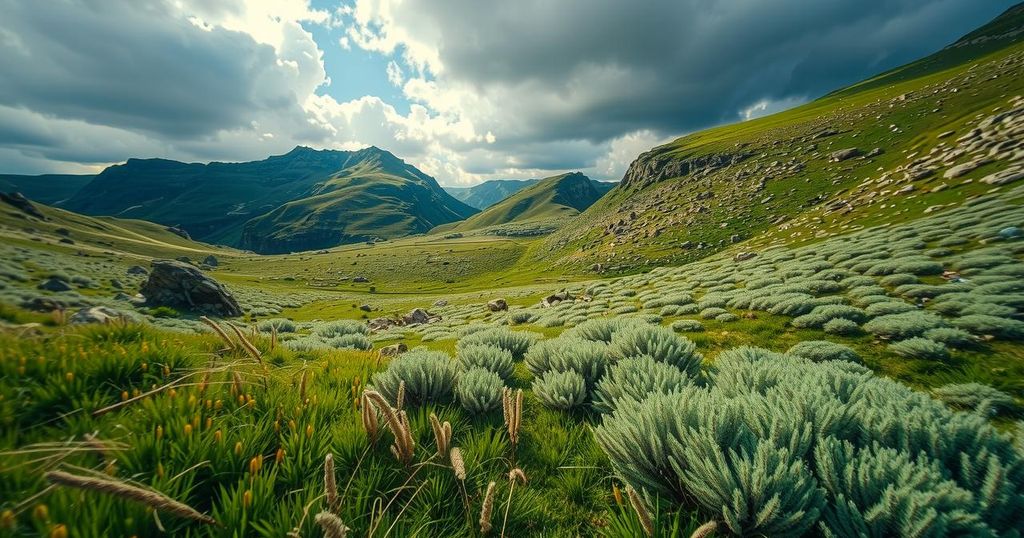A recent study reveals that grasslands are rapidly altering in response to climate change, demonstrating immediate ecological shifts compared to forests, which exhibit delayed reactions. Researchers analyzed decades of data from the California Floristic Province, observing shifts towards drought-resistant species as temperatures rise. This study emphasizes the need for long-term data and experimental approaches to understand these changes and inform restoration efforts.
Climate change is causing rapid ecological shifts in grassland ecosystems compared to forests, which tend to show delayed responses. A new study published in the journal Nature Ecology & Evolution indicates that while forests manifest a type of ‘climate debt’, grasslands are responding to climate alterations almost instantaneously. A group of researchers from various institutions analyzed extensive data collected over several decades across grassland communities in the California Floristic Province. This biodiversity-rich area has shown that, as climate conditions become hotter and drier, plant species favoring such environments are becoming increasingly dominant. The study, led by Associate Professor Kai Zhu and Postdoctoral Fellow Yiluan Song from the University of Michigan, involved collaboration with several professors and doctoral alumni from the University of California, Santa Cruz (UCSC). Initially, datasets collected to study the impact of agricultural practices on coastal prairies were repurposed to explore how climate change influences species composition. By integrating these long-term datasets with experimental data from sites specifically designed to manipulate rainfall, the research offered compelling evidence that ongoing climate changes are indeed altering plant communities in remarkable alignment with observational data. The authors emphasized the importance of comprehensive, long-term data collection to truly understand ecological changes, highlighting that the pace of change in grassland communities reflects shifts in climate conditions almost in real-time. However, these transformations should not be misconstrued as positive adaptations. The observed shifts were characterized by the uptick of certain drought-resistant species at the expense of species typically found in cooler and wetter environments, raising concerns regarding biodiversity loss. The researchers assert that understanding these dynamics is crucial for effectively restoring grassland ecosystems. They posit that similar rapid responses to climate change may be observed in grasslands globally, contingent upon regional climate conditions. This underscores the urgent need for ecological research to integrate climate dynamics into restoration strategies.
The topic of climate change’s impact on ecosystems, particularly grasslands, is increasingly critical as global temperatures rise. Grasslands are unique in their immediate response to changing climatic conditions compared to other ecosystems like forests, where changes can take years or decades to manifest. The research conducted in California’s biodiversity hotspots provides vital insights into how species composition shifts in response to environmental changes, crucial for informing conservation and restoration efforts.
In conclusion, the study highlights the swift rate of ecological change within grassland ecosystems in response to climate change, contrasting with the slower adaptations seen in forest ecosystems. The research underscores the significance of employing long-term datasets and experimental approaches to better document and understand these shifts. Furthermore, the findings deliver invaluable insights for the restoration of grasslands, emphasizing the necessity of considering climate dynamics in species selection for restoration efforts. The potential for similar rapid responses in other global grasslands warrants further investigation by the scientific community.
Original Source: news.ucsc.edu






